Debunking Nutrition Myths (Tips from a Registered Dietitian)
- October 22, 2021
- Last Updated: December 21, 2024
- 59 Comments
- Nutrition
Many clients come to me having heard these common food myths, so this post is meant to debunk some of the myths about diet and exercise that you may have heard or still believe.
Debunking nutrition myths is important to do so these falsities don’t continue to propagate in our culture!
Similar to this post on sports nutrition myths, let’s talk about some common food and exercise myths.
As an Amazon Associate, I earn from qualifying purchases || Last updated October 2021
Many of these nutrition myths need to be debunked, as they have been circulating for quite some time.
Nutrition myths seem to get exaggerated and blown out of proportion, so I thought it would be helpful to address some of these, which I also do in my hunger ebook.
1. Gluten Free Is Healthier
Gluten free myths are prevalent in the diet culture we live in. Give The Gluten Lie a read if you’d like a deep dive into this topic.
So, what is gluten? Gluten is a protein found in several grains and additives. While marketers and companies have demonized it, there’s nothing about gluten that is inherently “unhealthy” or bad for you.
There is no reason to avoid it unless you have celiac disease (about 1% of the population) or have been tested to be gluten intolerant, in which case it can be harmful for you and may impair digestion and nutrient absorption.
Many of the products marked gluten-free actually have more fat, sugar or preservatives than traditional products because manufacturers have to add something in to replace the gluten that they are taking out.
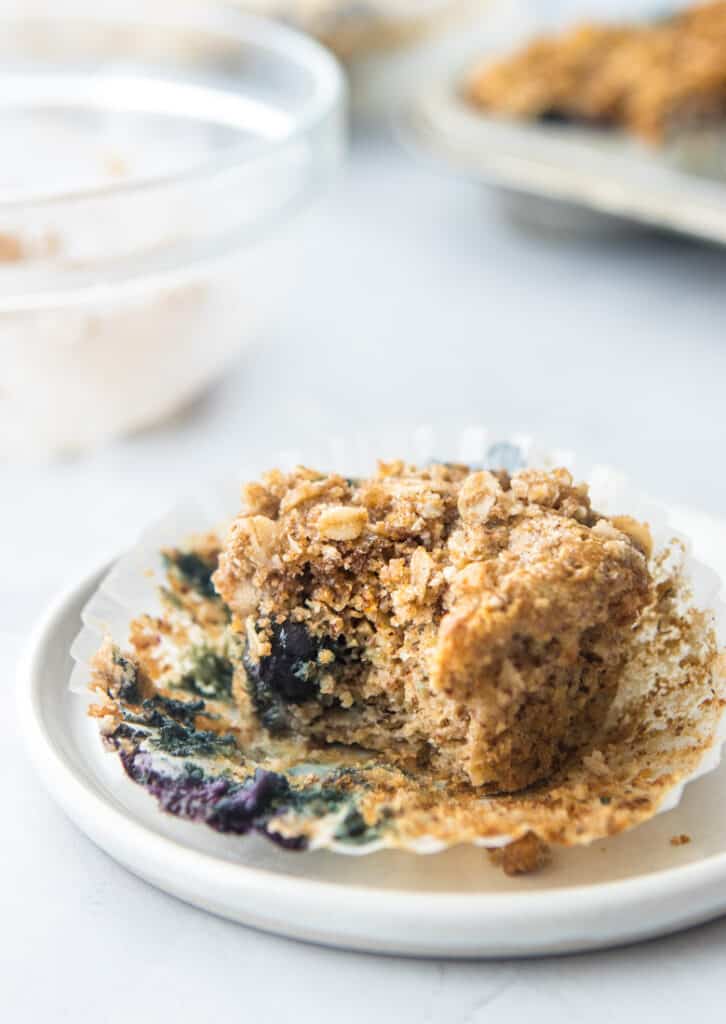
In the recipes I share, I try to be conscious of those who have celiac disease or don’t tolerate gluten.
I do have many gluten free recipes (some of my favorites include gluten free blueberry muffins and almond flour banana muffins), however, that doesn’t make my recipes any “healthier” than if I used ingredients with gluten, like whole wheat flour, farro, rye, barley.
It doesn’t have to be one or the other.
2. Carbs Are Bad
You’ve probably heard somewhere that carbs are bad or lead to weight gain. Avoid bananas and potatoes at all costs!
The truth is, we need carbs for energy. Our body can’t run without glucose, just like cars can’t operate without gas. Glucose is the preferred fuel for our brains and helps give our body the energy for our hearts to pump, our digestion to work.
Plus, carbs are the primary foods full of B vitamins, fiber and other essential nutrients.
When we don’t have enough carbohydrates in our diets, our body breaks down our muscles to use proteins for fuel (more on protein for athletes in this post).

In fact, labeling any food as bad is a major red flag. All foods have a purpose and can be nourishment, whether physical, mental, emotional, or a combination of all.
We talk a lot more about this in our post about why diet’s don’t work.
3. Calories In, Calories Out Myth
Ah, the calories in calories out myth. You’ve probably heard or thought, ‘If I eat below 1500 calories, I will lose weight.”
Weight loss is not so simple, and doing this is actually very stressful for the body. And it’s the main reason why fad diet’s don’t work.
Long term restriction starves the body of essential nutrients and fuel and revs up your stress hormones. Undereating, or not providing our working bodies with enough food, will cause more harm than good and can have major implications in the long run.
If you only know dieting, this post on how to eat like a normal person may be helpful for you!
You’ll also want to be aware of the signs you’re undereating for your workouts, because adding stress from physical exercise on top of stress from undereating is extremely harmful to the body.
Compulsive exercise also has negative side effects in which one may experience.
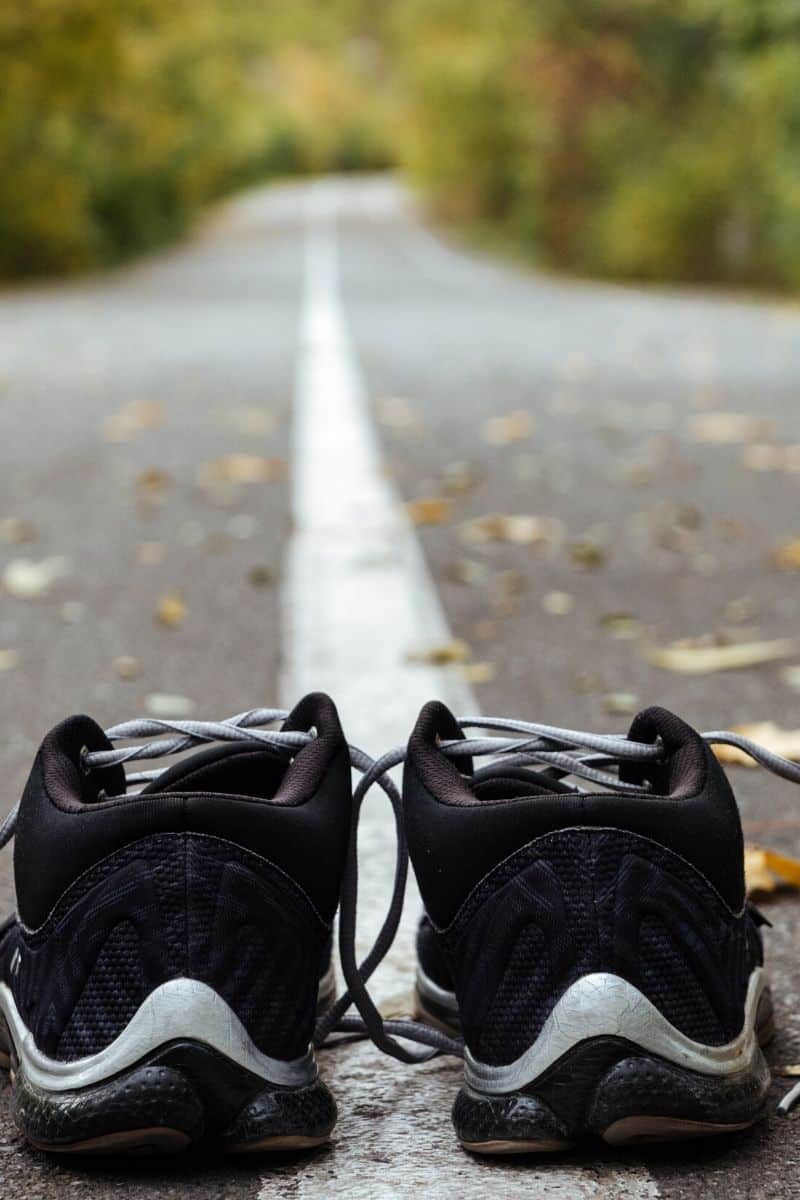
In short, weight loss is more than just calories in and calories out. Hormones, sleep and stress also play a major role in how the body responds.
4. Skipping Breakfast or Fasting
Eating breakfast may have a protective effect on preventing and/or treating type 2 diabetes and promoting overall health in young people.
Furthermore, breakfast helps us start the day with sustained energy, helps us better manage our glucose throughout the day, and helps us distribute energy more evenly throughout the day.
Even if you only have time for something small or a greek yogurt smoothie, something is better than nothing!
Not sure what to eat for breakfast? Try one of these easy meal prep breakfasts or make these high protein overnight oats in advance.
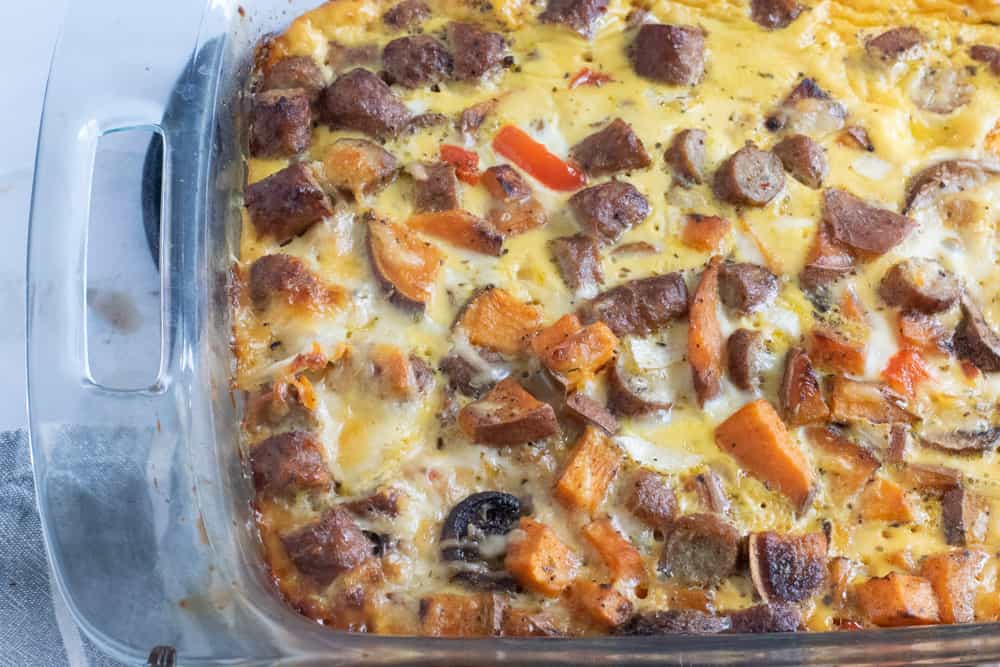
The body is smart and if you skip breakfast or lunch in an attempt to lose weight, the body will catch up on its own terms. This could look like bingeing or overeating later in the day, and may be a reason you feel out of control with food.
5. You Can’t Get Enough Protein on a Vegetarian Diet
It surprises me that many people still aren’t aware of where protein comes from, besides meat. Just to name a few: dairy, eggs, lentils, beans, legumes, nuts, seeds, grains, fish, tofu, tempeh, edamame, etc.
You can also get iron from non-meat sources, such as plants, beans and legumes. Check out more on iron for runners here.
If you’re interested in incorporating more plant-based meals into your lifestyle, check out this post on easy vegan meals. Here are some recipes to start with:
- Lemon Tahini Lentil Dip
- Sweet Potato Kale Hash
- Air Fryer Tempeh
- Tempeh Roasted Vegetable Bowl
- Mango Lime Quinoa Salad
- Eggplant Breakfast Hash
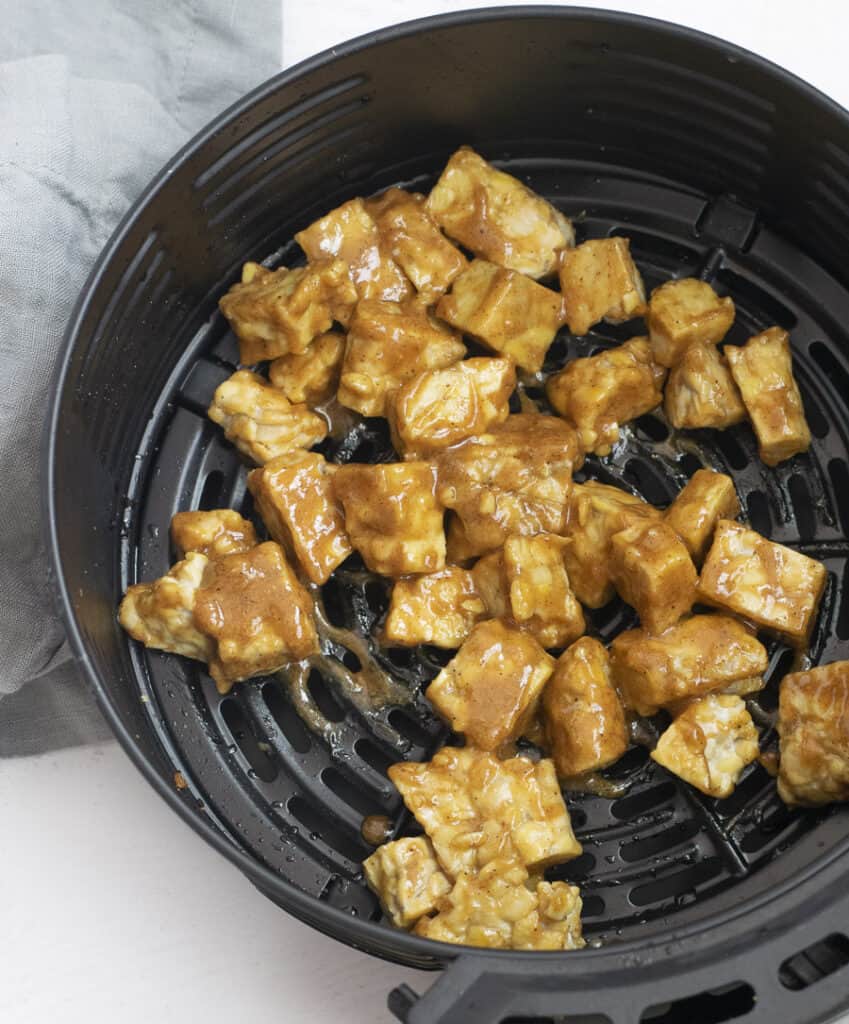
6. Organic Food is Always Healthier
No, you don’t have to purchase organic fruits and vegetables to get the nutrition benefits and live a healthy lifestyle.
There is a time and a place for organic produce. And for people who have the privilege and means to buy organic food, or just prefer organic food, by all means do so. However, traditional produce is just as healthy and confers similar nutrient benefits.
There is something to be said, though, about buying local when you can, because you’re supporting and investing in your local economy and the local food is fresher and more nutritious since there is less storage and transportation needed.
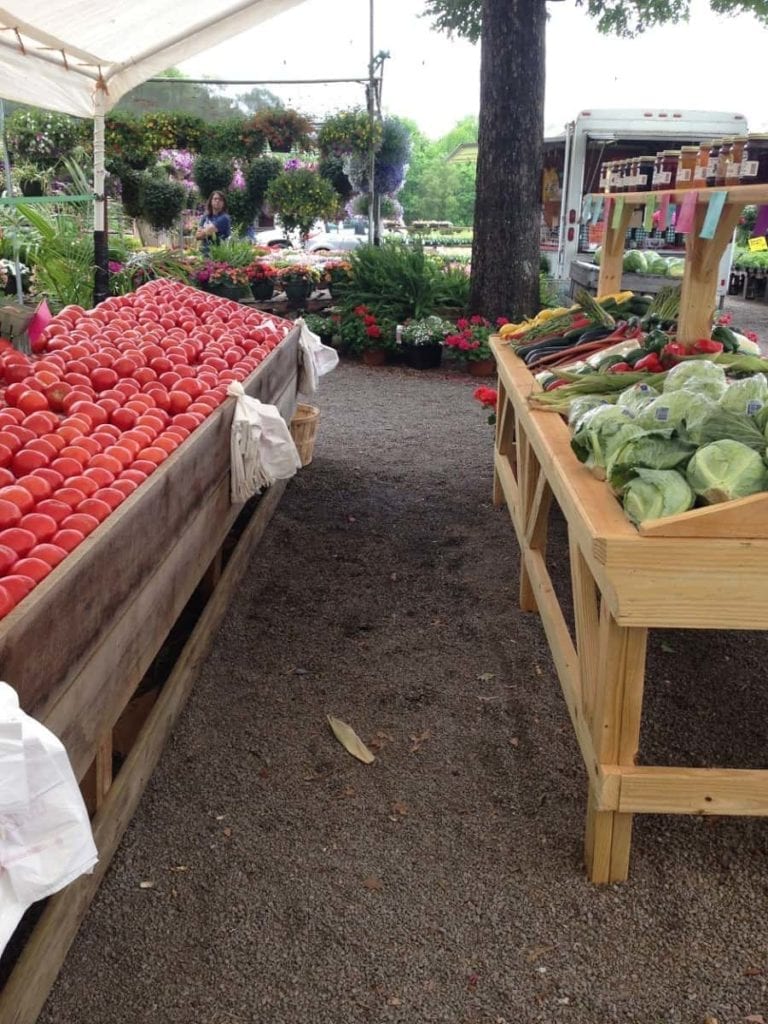
7. Eating Fat Makes You Fat
Thanks to the low-fat craze in the 80’s and 90’s, people became scared of fat and started eating more and more carbohydrates, namely highly processed carbohydrates and sugars.
The Mediterranean diet is consistently named one of the healthiest diets, and it’s one that promotes bountiful unsaturated fats. You need fats to digest certain nutrients (Vitamins A, D, E, K, to name a few), and unsaturated fatty acids have been shown to reduce cholesterol, especially when replacing saturated fat.
Fat is flavor. When you make peace with food, you can practice giving yourself permission to eat foods you like. You may find that when you allow all foods, it’s easier to eat them in moderation.
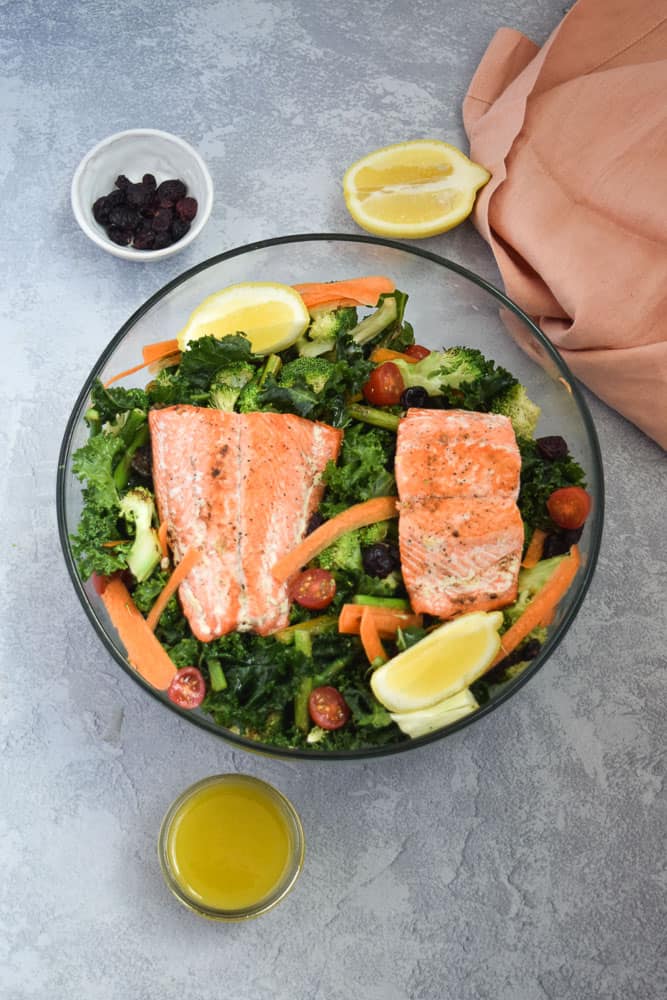
Omega 3 fatty acids are superb for reducing inflammation, which is one reason I’m always trying to up omega 3’s in my athletes too.
Also, on a related note, soy does not promote fat storage. One of my clients came in asking me about this, thanks to the unqualified guy at GNC who told her to avoid soy at all costs.
8. Eating Late at Night Leads to Weight Gain
Timing is not the determining factor of weight gain. There’s a myth about eating after 8pm being “wrong” or “bad” somehow. The thing is, your body or metabolism doesn’t know what time it is. It doesn’t turn off at a certain time.
In this post about why you should eat a protein snack before bed, we talk about how eating a nighttime snack doesn’t necessarily lead to weight gain. There are actually many benefits of eating a nighttime snack, especially if you’re an athlete or under your calorie levels.
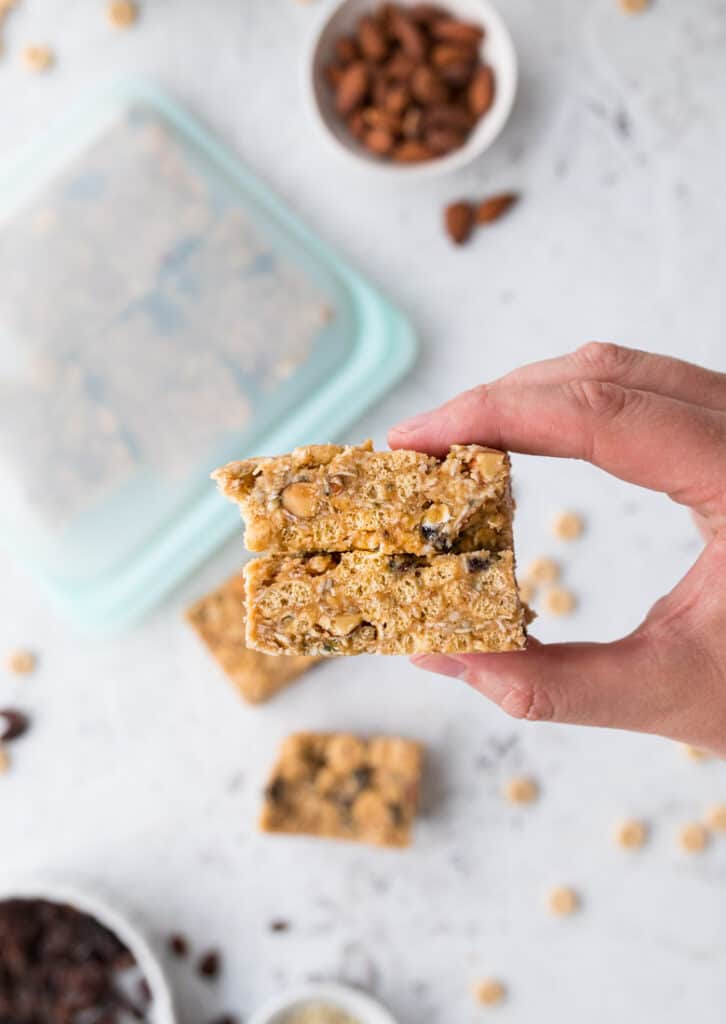
Let’s pretend you didn’t eat enough calories during the day. It makes sense that you’re eating more at night because you’re hungry and your body needs energy. Calories are units of energy, no matter when they are consumed.
9. Everyone Needs to Be on a Supplement
While many people may benefit from a multivitamin or certain supplement, it is definitely not a blanket statement across the board.
Supplements are not under the jurisdiction of the FDA, and therefore, are not regulated. Many supplements are also not third party tested, and have been shown to be harmful or even just a waste of money.
If you are choosing to supplement, do so under the care of a health provider. This post about supplements for runners provides some insight for active people and how to find a quality supplement.
Certain supplements, like leucine and creatine, can have benefits for athletes in particular, but should always be taken under supervision.
I would also urge you to listen to this Nail Your Nutrition episode on supplements.
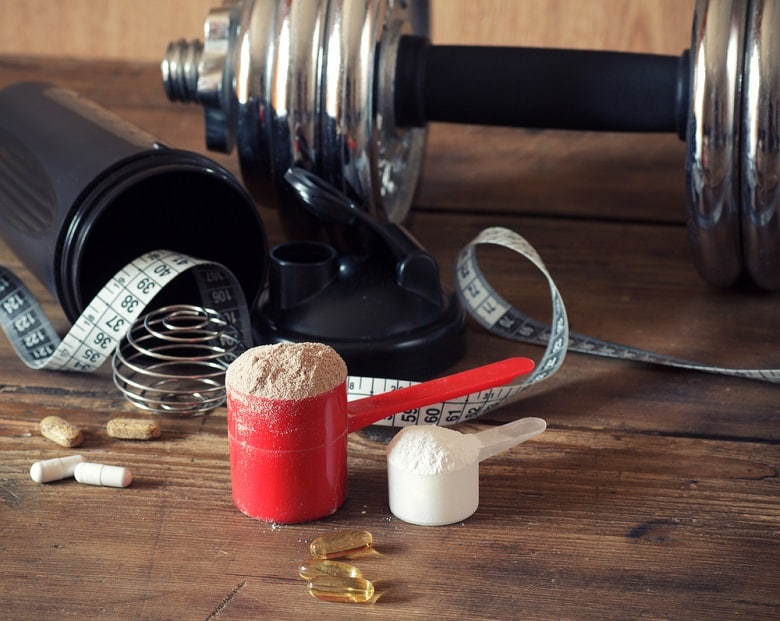
10. Not Having a Period is “Normal”
This one grinds my gears like no other! Doctors who still think this way is frustrating, and this has been proven by the research time and time again to be harmful.
A period is a health sign. If you have lost your period or it’s been missing for months, you should get it checked out, get your hormone levels tested and see a dietitian. You likely need to be eating more, exercising less or a combination of the two.
Relative energy deficiency can affect anyone, whether an athlete or not. And it affects multiple body systems, ranging from endrocrine, to cardiovascular to mood and cognition.
This post about RED-S and energy deficiency shares more about signs and symptoms and treatment.
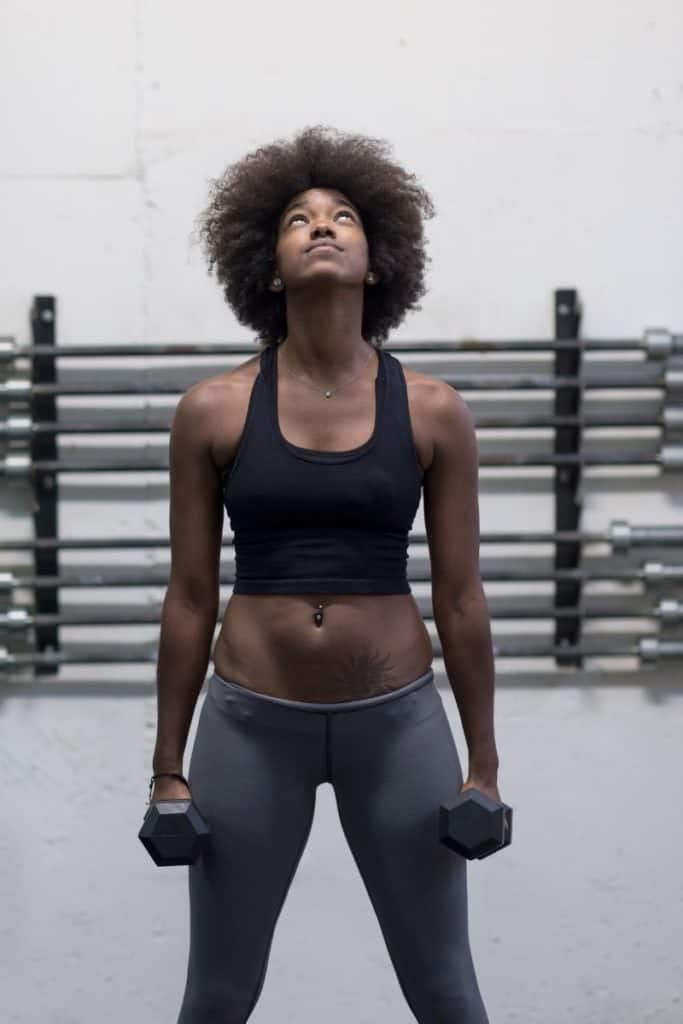
Are these nutrition myths debunked helpful? What else would you like me to discuss?
Resources:
- Tomiyama AJ, Mann T, Vinas D, Hunger JM, Dejager J, Taylor SE. Low calorie dieting increases cortisol. Psychosom Med. 2010;72(4):357-364. doi:10.1097/PSY.0b013e3181d9523c
- Leidy HJ. The Benefits of Breakfast Consumption to Combat Obesity and Diabetes in Young People. American Journal of Lifestyle Medicine. 2013;7(2):99-103. doi:10.1177/1559827612468687
- Hodson L, Skeaff CM, Chisholm WA. The effect of replacing dietary saturated fat with polyunsaturated or monounsaturated fat on plasma lipids in free-living young adults. Eur J Clin Nutr. 2001;55(10):908-915. doi:10.1038/sj.ejcn.1601234
- Sullivan R, Sarker A, O’Connor K, Goodin A, Karlsrud M, Gonzalez G. FINDING POTENTIALLY UNSAFE NUTRITIONAL SUPPLEMENTS FROM USER REVIEWS WITH TOPIC MODELING. Pac Symp Biocomput. 2016;21:528-539.
- Mountjoy M, Sundgot-Borgen J, Burke L, et al. The IOC consensus statement: beyond the Female Athlete Triad–Relative Energy Deficiency in Sport (RED-S). Br J Sports Med. 2014;48(7):491-497. doi:10.1136/bjsports-2014-093502
Explore More Recipes
NutritionSupport Bucket List Tummy

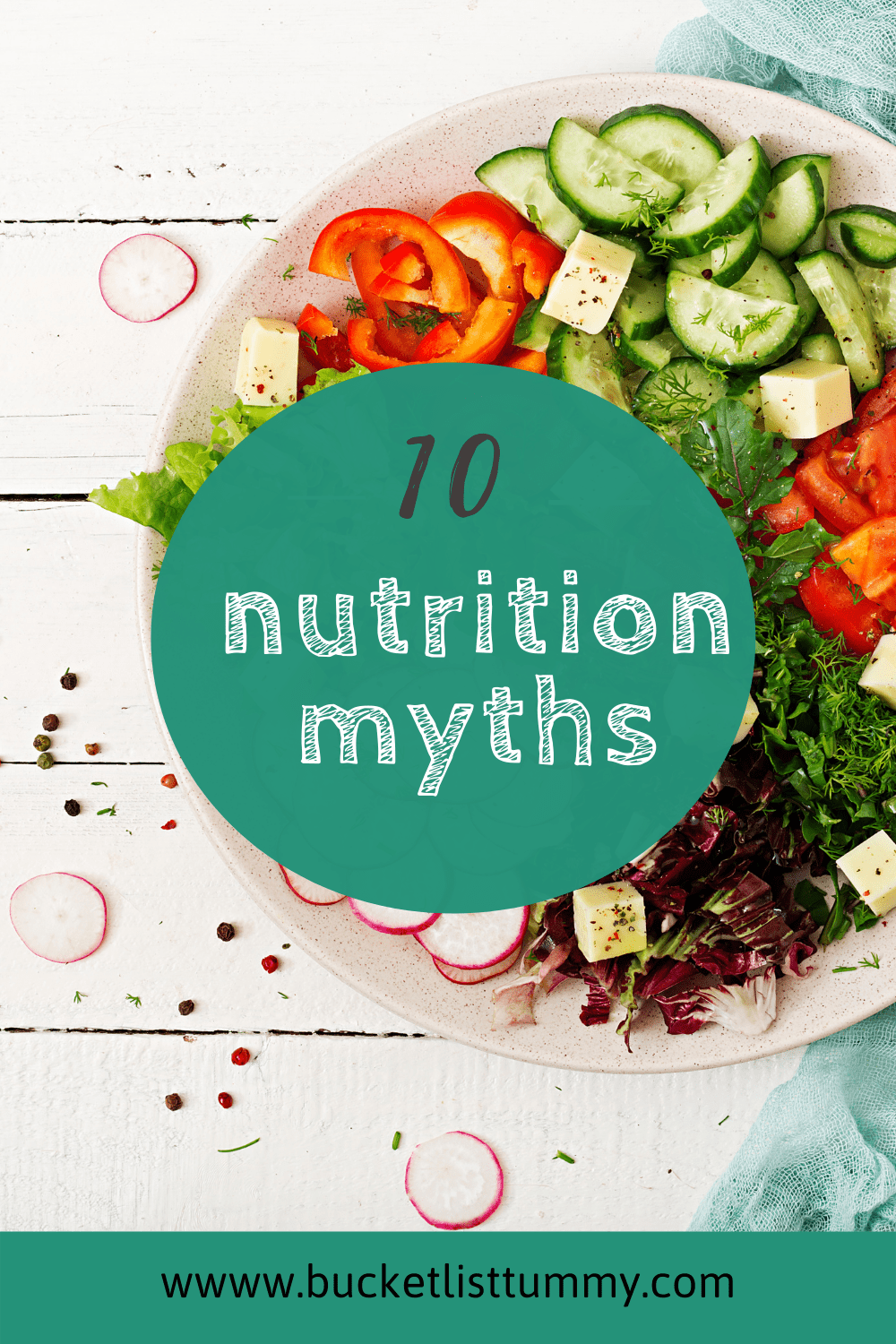


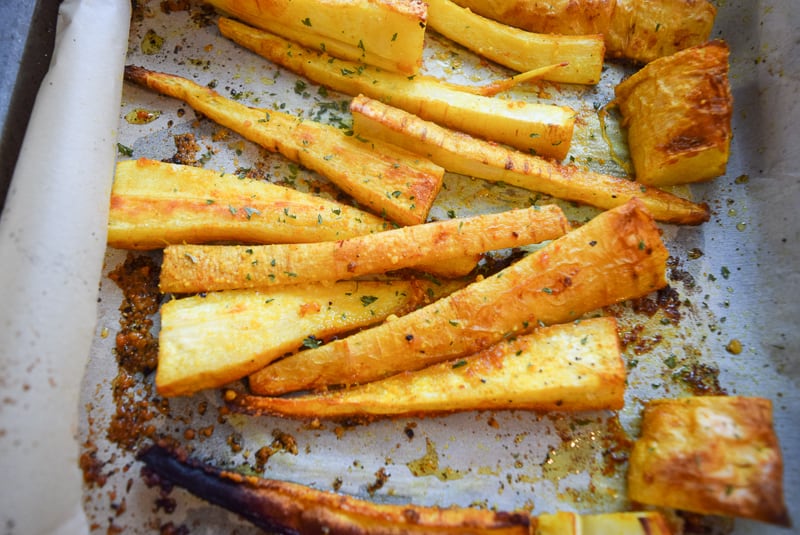
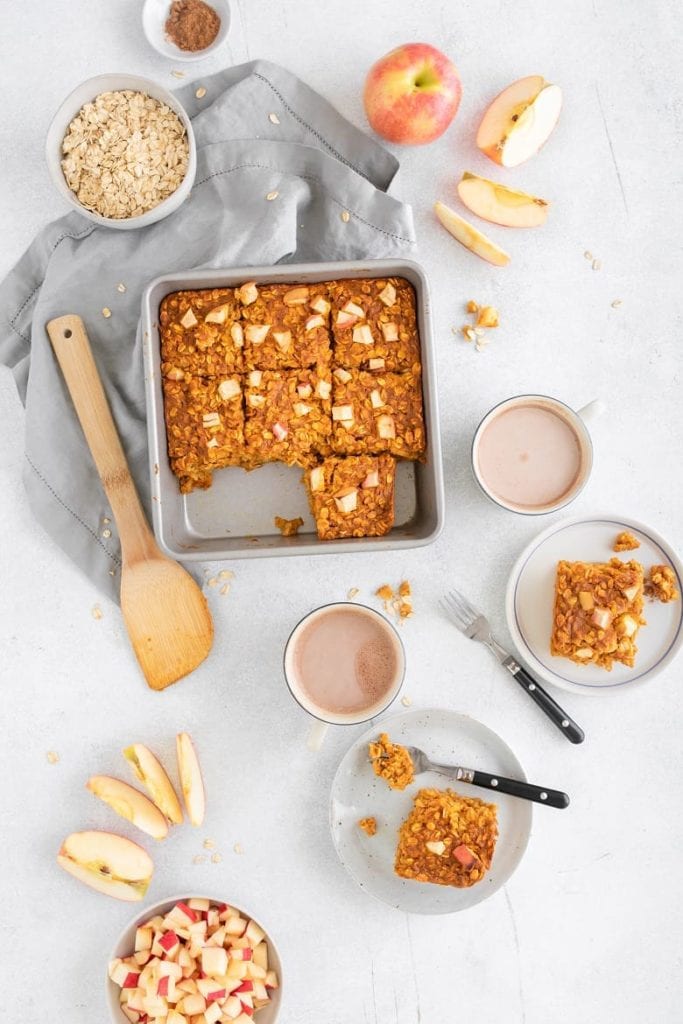

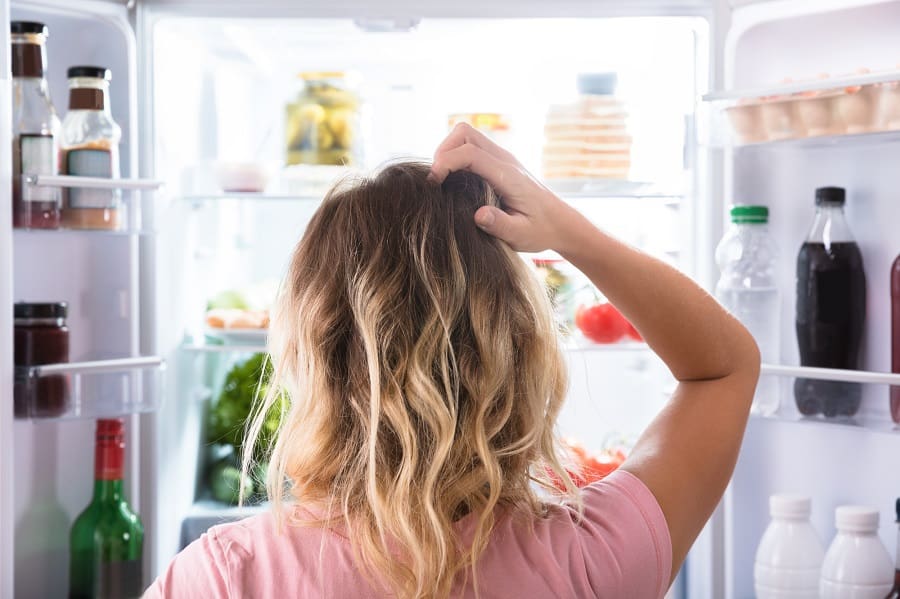
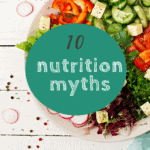
Like This Content?
Support Bucket List TummyThe whole “gluten-free means healthier” is an annoyance of mine, too. The other day I was working and a guy came in and looked at all the gluten-free cookies and muffins and cakes because his wife said he’d be “healthier” if he went gluten-free. As someone who avoids wheat because of IBS, I was like, ‘no, no; those things are delicious, but if you want to get a brownie, the wheat-filled once are no less healthy and a much better price.
Looks like a delicious day of eats! That ice cream looks yum!
It is a very difficult battle when people have certain things ingrained in their brains!
COULD NOT LOVE THIS MORE. The whole world needs to read this!
Thanks Caitlyn!
Love this! I have heard alllll of those myths too many times. My favorite: you have to eat dairy to get enough calcium. Umm, what about all the plants, leafy greens, and tofu products that have dairy?
So true. Many people don’t realize that 🙂
Love your explanations for why these myths are really myths! And I’m so glad they are because I can hardly focus if I don’t eat breakfast and can’t remember the last time I skipped it, and I just about always have a small snack after dinner. Those bars look amazinggg!
I wake up ravenous, there’s no way I could ever skip breakfast!
Preach. And thank you. I feel like I’m fighting the “gluten is evil” battle every day with friends and people I serve at work. It’s amazing how quickly we can be lead to believe something when the media gets their hands on it. I’m constantly trying to gently tell people that if your body can take it – gluten is good!
I love your words on your last point most of all. Again… The media has some crazy power over our brains. Thanks for fighting the fight.
The media has more power than I think anyone realizes, there is no one size fits all.
I saw organic liquor // spirits this past weekend & they were doing a taste test at the state store. The women were eating it up. Sigh. Calling something organic doesn’t make it good for you. You can make ice cream organic if you want to. Just the way having gluten doesn’t make something bad for you!
Gah, that is too funny! It’s funny what people will believe.
The gluten free one drives me completely crazy! Something that I hear a lot at work when I do diabetes education is that people who have diabetes cannot have carbohydrates and/or the paleo diet is the best for them.
I bet that is frustrating!
I’ve heard so many of these commonly touted, but now I’m really thankful to be in a group that has a lot of gals who are doing/studying nutrition so I’m learning/re-learning many of these things from you. I love fat and carbs, so those won’t be going anywhere in my diet, and I’ve found that a midnight snack is actually one of the things that has helped me sleep better. (aka: not waking up at night hungry) So… if someone was going to lose weight (not me), how many calories would you say is a safe minimum?
Fat and carbs are my favorite, too! It’s difficult to give you a number on that without knowing many other factors, but feel free to email me at [email protected] if you’d like to discuss more 🙂
I think the gluten free thing trend is getting more popular. I understand if you have celiac’s obviously, but for doing it because you deem it is healthier isn’t actually healthy! The myth about eating late always makes me chuckle. I used to follow that rule so religiously- but it is so untrue! I gotta get my hands on that flavor of chobani too- looks delicious!
I don’t think I could survive without my late night snacks!
Excellent post! I still read about potatoes being bad for you and how you need to cut carbs regardless of activity level – just nonsense. I’m going to share this with my athletes as we talk more about fueling running and nutrition. Thanks for the great post!
Thanks for sharing, Laura!
Yay for crushing nutrition myths. I am always surprised by how these messages still run rampant. I recently heard someone say that gluten is the cause of America’s obesity crisis… Sometimes there is no reasoning with people! All we can do is put the right message out there.
Totally making those bars!!!
You’re right. We just have to share the education and be voices of reason!
If the eating too late makes you gain weight myth was true, I’d be like a billion pounds! One of the most frustrating things for me is when I see the little “what this celebrity eats in a day” things in People magazine. Most of them show like 1,500 (or even less!!!) calories a day. I mean what??? That’s crazy! If you’re maintaining your weight on that little amount of calories, you’re setting yourself up for some serious metabolic damage. I’m also always so annoyed when people say diet sodas and drinks are healthier. I mean, come on! Chemical and artificial sweeteners can do a lot more damage than sugar (not that either is really optimal). If you really want to be “healthier”, just go for water.
Having celebrities and media figures endorse those diets is one of the problems, in my opinion. That’s how misinformation spreads like wild fires!
I was saying YASSSSSSSSSS to all of this! I’ hear each one of these at least weekly, if not daily!
Way too many times to count!
The calorie thing still baffles me! When i first lost weight, the ONLY advice I could find, really was to eat 1200 calories. And I remember thinking it always looked like SO little food. I did all of those calorie calculators and they ALWAYS told me the same thing. I think it’s so crazy that this is such a widespread and accepted piece of misinformation.
It’s sad that people see that as the norm. Hopefully we can shift the mindset and correct that misinformation.
The gluten one kills me! While I do love all of your posts, I really do love your informational posts.
PS- Elizabeth Creamery is bombbbb
Thanks Sara. That really does mean alot to me!
I’ve heard all of these and even though I’m not an RD and don’t have any certifications in nutrition, it drives me up the wall. I used to go on rants at my old job because my coworkers would talk about how bread makes you fat or that they can’t eat more than 1500 calories a day. I’m obviously extra sensitive because of my past, but it makes me so mad that there are all of these assumptions about what’s healthy (especially the gluten free one, which I could go on for days about). Most of the time, those assumptions people make are wrong!
Definitely one of the many problems with google, the media, and self-proclaimed experts! But that’s the great part of my job – I explain why these myths are not true, and why what people have heard isn’t scientifically based. I just want to educate people about true food and nutrition.
I am a nurse practitioner and I’ve heard all of these myths. The gluten free thing makes me nuts. The other trend I see is parents giving their kids almond milk instead of cow’s milk. They think it’s healthier but it is loaded with sugar! To me it is just as bad as juice. I think you have a hard job–seems like everyone thinks they are an expert on nutrition.
Yes, I deal with “experts” on a daily basis 🙂 I”m sure you do too!
This must be so frustrating for you! I love the intermittent fasting leads to weight loss. Honestly that would just lead me to eat like a billion calories in a short period of time 😛
It can be frustrating. I totally understand that each person is different and what works for one person may not work for another, but in our profession, we base our recommendations off of science and evidence.
loveeeeee this post. Thank you so much for sharing all of these in an informative way. I can’t even tell you how many times someone has asked or rather told me one of these “myths” and I’ve just wanted to run away. I can’t deal with people who attack instead of come at it in an inquisitive way. Like, if that’s your feelings on it than fine, but can I please share some actual KNOWLEDGE with you on the matter? People are so obsessed with what the media and marketing says is correct, not the real, straight up facts.
The media can be very manipulative, we just have to be careful not to believe everything we hear.
I have heard so many of the same things! Especially the gluten thing! I couldn’t agree more with you about having a pizza or bread that is gluten free isn’t much better than the real thing!
Just a myth we have to squash! 🙂